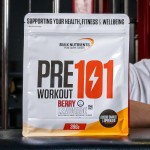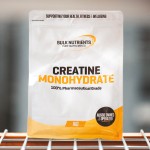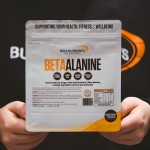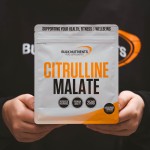Our Pre Workout 101: Why It Works!

Ingredients with STRONG evidence
- Caffeine
- Creatine Monohydrate
- Beta Alanine
Ingredient 1: Caffeine
Caffeine is a powerful supplement used to enhance physical and mental performance. Unlike beta alanine and creatine, a single dose of caffeine has the capacity to increase mental focus, muscle contraction strength, endurance performance, fatty acid oxidation, while reducing the perception of fatigue, and sparing muscle glycogen. With respect to dosing, 3-6 mg/kg is recommended 60 minutes prior to training or competition. However, in some cases, 6-9 mg/kg may be consumed with positive effects. It is worthwhile to assess tolerance with lower doses initially to measure potential side effects such as anxiety, insomnia, dizziness, irritability, and stomach discomfort.
Another important research finding is that caffeine increases metabolic rate by around 16% following a high dose (8 milligrams per kilogram of body weight). It is important to consider however that a 16% increase in metabolic rate is unlikely to notably improve long term fat loss, evident by previous research showing no fat loss effects after 6 months of supplementation with caffeine.
The best benefits from caffeine are going to come from the performance, strength, and focus benefits, which likely result in improved training output and higher training volumes, indirectly encouraging fat loss and muscle gain.

Ingredient 2: Creatine Monohydrate
Creatine Monohydrate is one of the most popular supplements for athletes, grounded in years of well-controlled scientific studies. The majority of creatine stored in our muscle is in the form of phosphocreatine, creatine and a phosphate molecule bound together. When this molecule undergoes hydrolysis, it releases a small packet of energy. This energy is then used to combine ATP, which is the energy source for our high-intensity training efforts. A greater phosphocreatine content in the muscle creates more potential for ATP production, especially during maximal effort exercise.
Studies have consistently shown that supplementing with creatine (or increasing our phosphocreatine storage) can improve training performance, as well as enhance the adaptations from that training. Other research within the supplement realm indicates that creatine can improve post-training recovery, prevent injuries, help to manage body temperature levels, and even protect the nervous system during concussions.
Creatine supplementation may also allow one to do more work over a series of weight training sets. Improving the volume and quality of work over a number of sets may lead to greater gains in strength, muscle and performance. After a period of creatine supplementation, high-intensity and repetitive exercise performance can increase by up to 10-20%. Taking into account efficacy, safety, and cost, creatine is among the surest supplement bets for inclusion in a pre workout.
Ingredient 3: Beta Alanine
Beta Alanine is a modified version of the amino acid alanine and it is used as a performance aid principally because of its implications with increased muscle endurance. Supplementing daily for 4-8 weeks has been linked with improved performance in exercise efforts lasting 1-6 minutes. Researchers have also reported subjects being able to perform one or two additional repetitions in the gym when training in a range of 8-20 reps, closer to the endurance end of the repetition spectrum. In addition, beta alanine seems to yield a mild hypertrophic effect, most likely due to increasing the training volume that can be completed in each workout session. Finally, supplementing beta alanine may improve buffering capacity and therefore delay the onset of fatigue during training.
In terms of dosing protocols, 2,000 – 5,000 mg of beta alanine daily for 2-8 weeks has been shown to be effective. One notable side effect (and possibly the most well-appreciated feature) of beta alanine is mild paresthesia – a tingling in the skin of the face and arms – however, this is harmless and can also be avoided by doing split doses across the day.
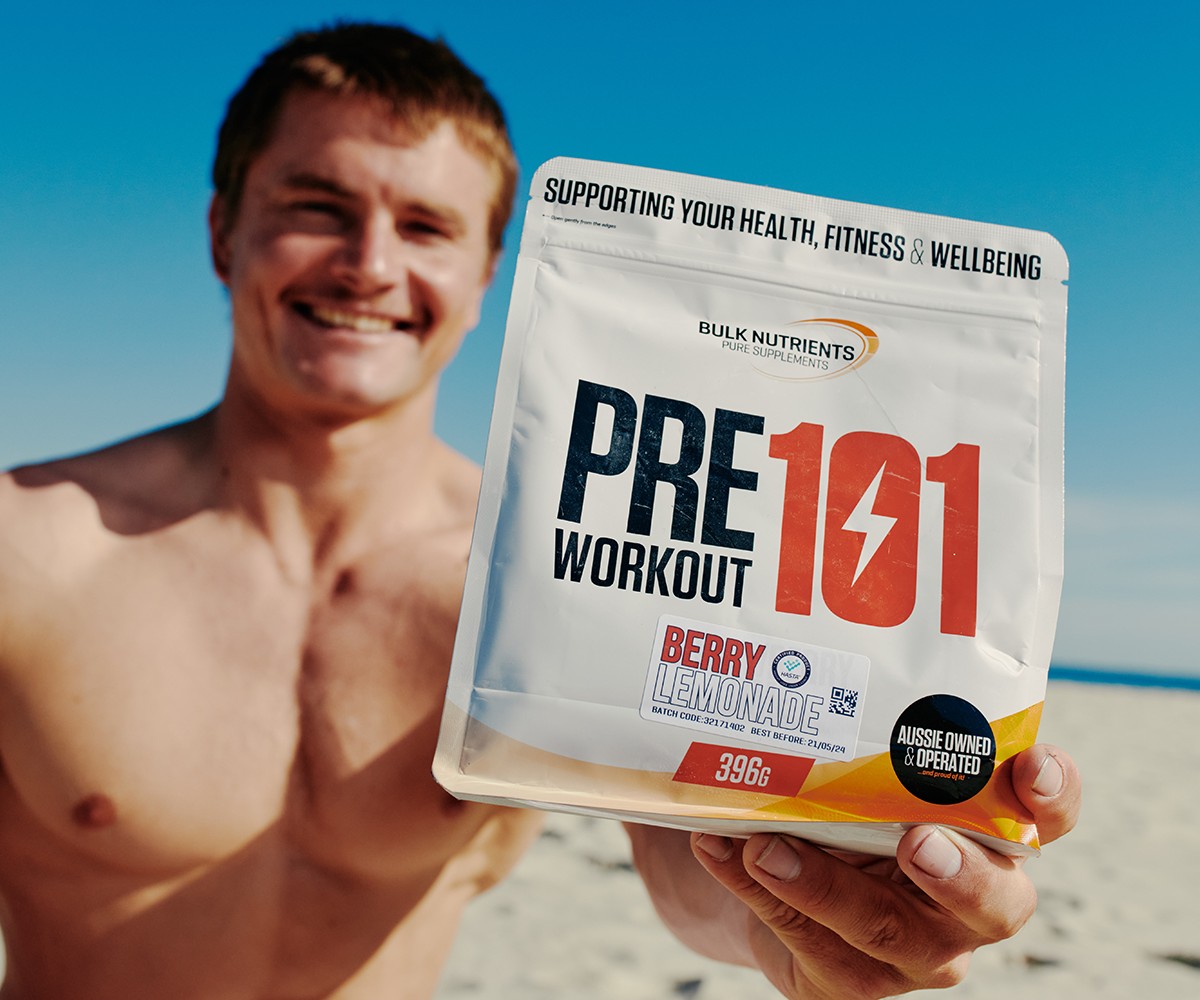
Ingredients with MEDIUM evidence
- Citrulline Malate
- Branch Chain Amino Acids (BCAAs)
Ingredient 4: Citrulline Malate
Citrulline Malate is most well-known for its role in nitric oxide metabolism. Nitric oxide-mediated benefits of citrulline referenced in the literature include improved athletic performance, vascular health, and even resolving erectile dysfunction.
In general, research supports a modest reduction in blood pressure and improvement in blood flow from chronic citrulline supplementation, particularly for those with hypertension and other cardiovascular problems. Limited research suggests an improvement in power output, a reduction in fatigue and improved endurance for both aerobic and anaerobic exercise.
Many of the studies referenced have used acute citrulline supplementation, but benefits are more likely to be found from chronic supplementation. Specifically, studies that provided participants with daily citrulline for at least one week prior to testing, saw consistent improvements in performance markers.
A recent meta-analysis (a study of all studies on a topic) also concluded that citrulline supplementation overall provided small but significant increases in exercise performance.
There's more comprehensive research supporting the nitric oxide-mediated benefits of arginine - with citrulline increasing arginine levels - thus it’s plausible that citrulline is playing a beneficial role via this pathway. Furthermore, some research suggests that taking citrulline will lead to higher and more consistent arginine levels than taking arginine alone. Citrulline is very readily converted to arginine as needed, and it is also better absorbed than arginine, which not only makes it a better source of arginine for the body but can mean a lower rate of gastrointestinal upset than arginine when taken in high doses.
Citrulline malate is the most researched form of citrulline, and there is speculation about an independent role of malate in producing performance benefits, but there's insufficient research to compare citrulline malate to L-citrulline directly. Research recommendations suggest 6,000 – 8,000 mg of citrulline malate about an hour before exercise for maximal performance benefits. On days that you don't exercise, it can be broken up into smaller doses. Citrulline research does not report notable side effects, though more research is needed to confirm its long-term safety when taken in high doses.
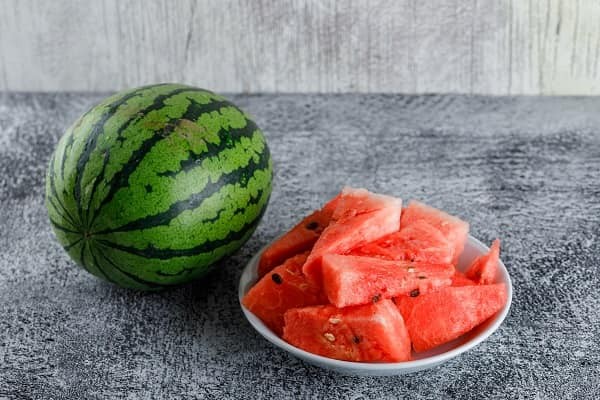
Ingredient 5: Branch Chain Amino Acids (BCAAs)
Branch Chain Amino Acids (BCAAs) are three specific essential amino acids – leucine, isoleucine, and valine – often claimed to yield particular anabolic, recovery, and performance benefits. Specifically, isoleucine is reported to increase glucose uptake into cells, and leucine is known to independently stimulate muscle protein synthesis.
Supplementation with BCAAs has also been shown to prevent fatigue and improve recovery among novice athletes. Exercise causes a decrease in circulating levels of BCAAs in the blood, resulting in an influx of tryptophan into the brain and the release of serotonin causing fatigue. Thus, supplementing with BCAAs might potentially prevent the serum decline in BCAA levels during exercise, delaying fatigue onset.
It is important to note that BCAAs are present in high doses in a variety of protein sources, particularly meat and eggs. Thus, supplementation with BCAAs is generally unnecessary for people with a sufficiently high protein intake (1-1.5 g/kg of body weight a day or more). However, for people with a low daily protein intake, BCAA supplementation can promote muscle protein synthesis (creating a more anabolic environment) and increase muscle growth over time.
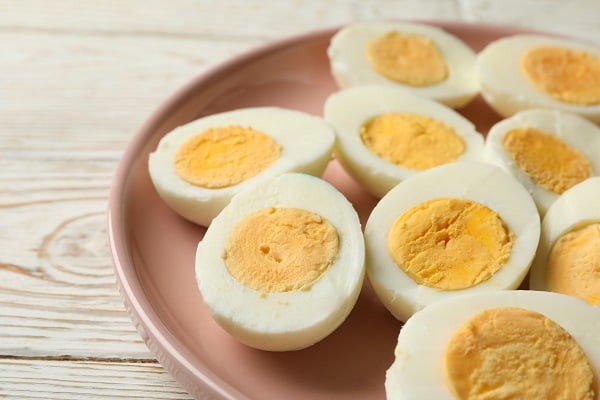
Ingredients with SOME evidence
- L-Theanine
- L-Tyrosine
Ingredient 6: L-Theanine
Research on L-Theanine seems to support a reduction in anxiety and stress, and improved relaxation following supplementation. L-Theanine is also reported to increase sleep quality due to deeper sleep.
Other potential benefits of supplementation include improvements in attention and executive function, however, more research is needed to confirm any cognitive effects. Some researchers also suggest L-Theanine may have a mild reduction effect on blood pressure and jitters, taking "the edge off" stimulants and pre workout products, but more research is needed to confirm this.
The relaxing and attention promoting properties of L-Theanine coupled with the lack of sedation may be the most important role L-Theanine plays in a pre workout, avoiding the “wired” feeling that many other pre workouts cause. Finally, a combination of theanine and caffeine is noted to be synergistic in promoting cognition and attention.
Ingredient 7: L-Tyrosine
L-Tyrosine is an amino acid that is used to produce noradrenaline and dopamine; it appears to reduce stress during exposure to acute stressors, improve mood and cognitive function, and may help to prevent stress-induced memory and attention deficits.
L-Tyrosine is an amino acid found in the diet that is metabolized to produce catecholamines such as dopamine and adrenaline. It is also used in the production of thyroid hormones. For these reasons, weight loss and pre workout supplements often include it.
However, some studies have noted that in stressful situations where noradrenaline exerts a protective effect, supplying L-Tyrosine seems to provide a 'safety buffer' of building blocks that can prolong the anti-stress effect of catecholamines by delaying their depletion.
This has been noted in situations of cold stress, psychological stress, and sleep deprivation in humans but at a relatively high dose of 150mg/kg. Improvements in focus and attention during stressful situations have been found, though the effect does not appear to be very large.

Ingredients with LITTLE evidence
- Choline Bitartrate
- Silica
Ingredient 8: Choline Bitartrate
Choline is a molecule mostly used for either its cognitive boosting properties (turning into acetylcholine, the learning neurotransmitter) or as a liver health agent, able to reduce fatty liver build-up. Found in high amounts in egg yolks.
Ingredient 9: Silica
When six trained male cyclists were given silica in three divided doses totalling 1g for one week before a 40km bike ride, researchers found that supplementing silica caused less blood lactate production compared to riders taking a placebo during the time trial. Thus, it is possible that supplementing with silica could delay fatigue during workouts.

Jackson Peos
Jackson Peos has completed a PhD at the University of Western Australia, and has a straightforward approach to nutrition and supplements.
He's completed his BSc in Sports Science, and Exercise & Health, and his BSc (Hons) in Exercise Physiology.
References:
- Astrup A, Buemann B, Christensen NJ, Toubro S, Thorbek G, Victor OJ, Quaade F. The effect of ephedrine/caffeine mixture on energy expenditure and body composition in obese women. Metabolism. 1992 Jul;41(7):686-8.
- Banderet LE, Lieberman HR. Treatment with tyrosine, a neurotransmitter precursor, reduces environmental stress in humans. Brain Res Bull. 1989 Apr;22(4):759-62.
- Blomstrand E, Hassmén P, Ek S, Ekblom B, Newsholme EA. Influence of ingesting a solution of branched-chain amino acids on perceived exertion during exercise. Acta Physiol Scand. 1997 Jan;159(1):41-9.
- Deuster PA, Singh A, Coll R, Hyde DE, Becker WJ. Choline ingestion does not modify physical or cognitive performance. Mil Med. 2002 Dec;167(12):1020-5.
- Gualano AB, Bozza T, Lopes De Campos P, Roschel H, Dos Santos Costa A, Luiz Marquezi M, Benatti F, Herbert Lancha Junior A. Branched-chain amino acids supplementation enhances exercise capacity and lipid oxidation during endurance exercise after muscle glycogen depletion. J Sports Med Phys Fitness. 2011 Mar;51(1):82-8.
- Kostek MA, Pescatello LS, Seip RL, Angelopoulos TJ, Clarkson PM, Gordon PM, Moyna NM, Visich PS, Zoeller RF, Thompson PD, Hoffman EP, Price TB. Subcutaneous fat alterations resulting from an upper-body resistance training program. Med Sci Sports Exerc. 2007 Jul;39(7):1177-85.
- Little RJ, An H, Johanns J, Giordani B. A comparison of subset selection and analysis of covariance for the adjustment of confounders. Psychol Methods. 2000 Dec;5(4):459-76.
- Mazzini L, Balzarini C, Colombo R, Mora G, Pastore I, De Ambrogio R, Caligari M. Effects of creatine supplementation on exercise performance and muscular strength in amyotrophic lateral sclerosis: preliminary results. J Neurol Sci. 2001 Oct 15;191(1-2):139-44.
- Purdy Lloyd KL, Wasmund W, Smith L, Raven PB. Clinical Effects of a Dietary Antioxidant Silicate Supplement, Microhydrin((R)), on Cardiovascular Responses to Exercise. J Med Food. 2001 Autumn;4(3):151-159.
- Stout JR, Cramer JT, Zoeller RF, Torok D, Costa P, Hoffman JR, Harris RC, O'Kroy J. Effects of beta-alanine supplementation on the onset of neuromuscular fatigue and ventilatory threshold in women. Amino Acids. 2007;32(3):381-6.
- Trexler ET, Keith DS, Schwartz TA, Ryan ED, Stoner L, Persky AM, Smith-Ryan AE. Effects of Citrulline Malate and Beetroot Juice Supplementation on Blood Flow, Energy Metabolism, and Performance During Maximum Effort Leg Extension Exercise. J Strength Cond Res. 2019 Sep;33(9):2321-2329.
Related Blogs

How to Make Your Own Pre Workout Supplement
Posted by Nick Telesca
Estimated reading time: 12 minutes

Caffeine and Creatine: Take Both, but Not Together?
Posted by Jackson Peos
Estimated reading time: 5 minutes
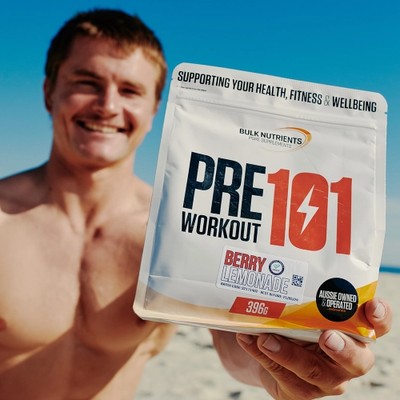
What Makes a Good Pre Workout?
Posted by Mason Brezinscak
Estimated reading time: 16 minutes
